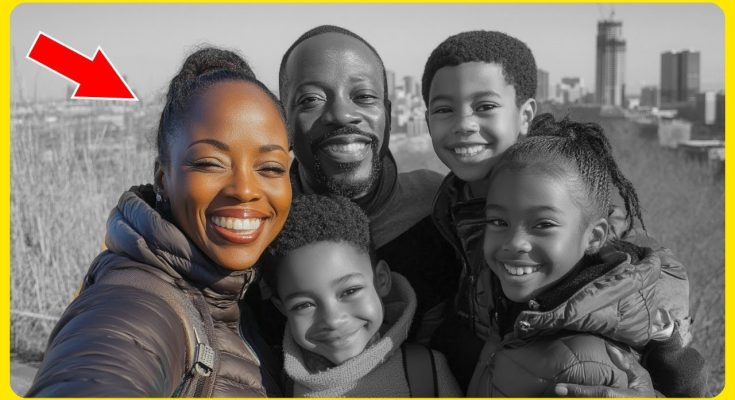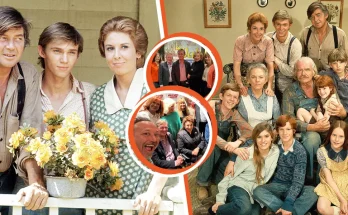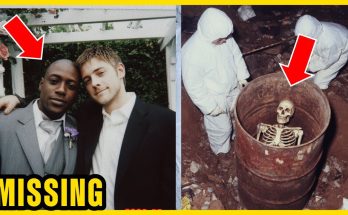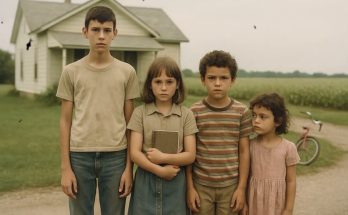His Wife Abandoned Him and Their 5 Kids, 20 Years Later, She Begged Him to Save Her Life | HO

In the quiet heart of a working-class neighborhood, Marcus Brooks built a life from the ashes of betrayal. Two decades after his wife Tasha walked out on him and their five children, she resurfaced—desperate, sick, and pleading for the family she once left behind. What unfolded is not just a story of abandonment, but of resilience, reckoning, and the kind of closure that doesn’t come with forgiveness, but with moving on.
The Night Everything Changed
Marcus Brooks was not a suspicious man. He worked long hours at the local mill, came home exhausted but grateful for the chaos of a house filled with five children and the quiet comfort of his wife, Tasha. He trusted her. That’s what you do when you build a life together. You believe, you hope, and you give the benefit of the doubt—even when the cracks begin to show.
There were signs: late nights, unexplained absences, secretive phone calls, a growing distance in her touch. Marcus chalked it up to stress, the exhaustion of raising a big family. But one evening, everything changed. Granted a rare half-day by a sympathetic supervisor, Marcus decided to surprise Tasha with dinner at their old favorite diner. Instead, he returned to a dark, empty house.
He waited for hours, nerves fraying, until instinct—something deeper than suspicion—drove him out into the night. Two blocks away, under the harsh glare of a flickering streetlight, he found her. Tasha, his wife, was laughing in the arms of another man. Carefree. Gone. The confrontation was swift and brutal: the stranger’s fists, Tasha’s cold indifference, and the faces of his children—wide-eyed and terrified—watching as their father was beaten and humiliated.
That night, Marcus made a choice. Not revenge, not anger, but survival. He gathered his children and walked away, leaving Tasha behind in every sense that mattered.
Building a Family From the Wreckage
What followed was a lesson in resilience. Marcus became both mother and father, working two jobs—days at the mill, nights stocking shelves at a grocery store. His hands grew calloused, his body tired, but his heart remained soft where it counted. Every scraped knee he kissed, every late-night homework session he stayed up for, every birthday celebrated with homemade cakes and dollar-store decorations was a brick in the new foundation he built for his family.

Kesha, the eldest, became his right hand. She matured overnight, managing her siblings with a grace far beyond her years. Malik, Mariah, Jamal, and little Simone followed her lead, each carving out their own path under Marcus’s watchful eye. They didn’t grow up rich—there were nights when dinner was thin and shoes were hand-me-downs—but they grew up loved.
Through every school play missed by a mother who never called, every holiday marked by an empty chair, Marcus reminded his kids they were more than their pain. They were Brooks, and Brooks didn’t break. He refused to speak ill of Tasha, teaching his children not to let bitterness define them. “Some people leave, baby,” he’d say. “But the ones who stay are the ones who count.”
The Long Shadow of Absence
Time moved differently in the Brooks household. Some days passed like rivers, others like storms. The house bore the scars of survival—the leaky roof, the sputtering heater, the dent in the floor from Malik’s first toolbox. But it also held laughter, music, and hope.
Kesha won a scholarship and left for college, calling home every night. Malik earned a partial football scholarship, Mariah’s poetry won state awards, Jamal became a mechanic, and Simone—the baby—grew into a fierce, sharp-eyed young woman who refused to be pitied. Every milestone was a reminder not of what they’d lost, but of what they’d built together.
Yet, some wounds never fully healed. Mother’s Days were quiet, marked by a muted sadness. On those mornings, Marcus made pancakes shaped like hearts and told stories of his own mother, filling the hollow spaces with pride and legacy.
Tasha became less a person, more a ghost—a missing piece that no longer hurt so much as it simply was. Marcus stopped wondering about her, stopped caring where she was or who she was with. She was a chapter closed, a name no one said anymore.
A Call From the Past
The call came on a rainy Wednesday, long after Marcus had stopped expecting anything from the past. A social worker from St. Mary’s Hospital explained that Tasha was gravely ill—her kidneys were failing. She had no compatible family except Marcus and the five children she’d abandoned. They were her last hope for survival.
For three days, Marcus told no one. He went to work, cooked dinner, folded laundry, but the phone call weighed on him. He didn’t hate Tasha—hate would have been easier. What he felt was colder, more enduring: the knowledge that choices have consequences.
On the fourth night, he gathered his children around the kitchen table and told them the truth. The reaction was unanimous: shock, anger, and a heavy, resigned quiet. Kesha’s eyes glistened with unshed tears. Malik’s fists clenched. Mariah wiped at her cheeks. Simone, ever defiant, said, “She’s not family. She gave that up a long time ago.”
Marcus let them vent, then told them, “You owe her nothing. Not your anger, not your forgiveness, and definitely not your blood.”
They decided together: they would not donate. They would not reopen old wounds for someone who had never tried to heal them.
Closure, Not Forgiveness
A week later, the hospital called again. Tasha was stable, but her window was closing. She wanted to see Marcus and the children, to apologize, to explain, to beg for a miracle only the family she’d left behind could give.
This time, Marcus and his children agreed to visit—not for her, but for themselves. For closure.
They walked into the hospital together, tall and proud. The woman in the bed was not the Tasha Marcus remembered. Time and regret had ravaged her. Her apology was desperate, her pleas raw.

Kesha spoke first: “You left us. You chose him. And we chose to survive without you.” Malik added: “You had everything. You threw it away.” Mariah cried for the little girl she’d been, not for the woman before her. Simone, unflinching, said, “We’re better off without you.”
Marcus, finally, spoke: “We didn’t want to be abandoned. But we lived with it.”
They left her there, her sobs echoing down the sterile hallway, and walked out carrying no anger, no vengeance—only the unbreakable truth that sometimes survival means knowing when to walk away.
The Life They Built
Back home, life resumed its steady rhythm. Mariah published her first poetry collection. Jamal opened his own repair shop. Simone was accepted to law school. Malik got engaged. Kesha announced she was pregnant. Their lives bloomed—bright, unstoppable.
Marcus sometimes thought of Tasha, wondered if she was still alive, if she regretted her choices. But he didn’t dwell. Some questions don’t deserve answers.
He had no hate left for her, only gratitude that he had walked away when he did. The Brooks family didn’t just survive—they thrived. They became everything Tasha had once promised to be, and so much more.
A Final Reckoning
When the hospital called again, Marcus almost didn’t answer. But a sense of unfinished business compelled him. The nurse explained that Tasha’s time was running out. She wanted to see her family one last time.
Marcus gathered his children. They decided to go—not for her, but for themselves. To end the story on their terms.
In the hospital room, Tasha reached out, begging for forgiveness, for connection, for help. The Brooks family gave her only the silence she’d earned. They walked away, closing the door on a chapter that had haunted them for twenty years.
Outside, the rain fell softly. Marcus stood with his children, feeling for the first time in decades not like a man left behind, but like a man who had finally come home.
The Lesson
This is not a story of revenge or bitterness. It’s a story of survival, of building something beautiful from the wreckage of betrayal. Marcus Brooks and his children learned that sometimes, love is not about giving someone another chance. Sometimes, it’s about knowing you deserve better—and choosing to move forward, together.
And for Tasha, the final lesson: you can’t abandon a garden and expect it to feed you when you’re starving. Sometimes, love grows without you. Sometimes, it forgets you ever existed.
If you or someone you know is struggling with abandonment or family hardship, remember: survival is not just about enduring, but about building something new. The Brooks family is proof that even the deepest wounds can heal—and that sometimes, the best closure is moving on.



